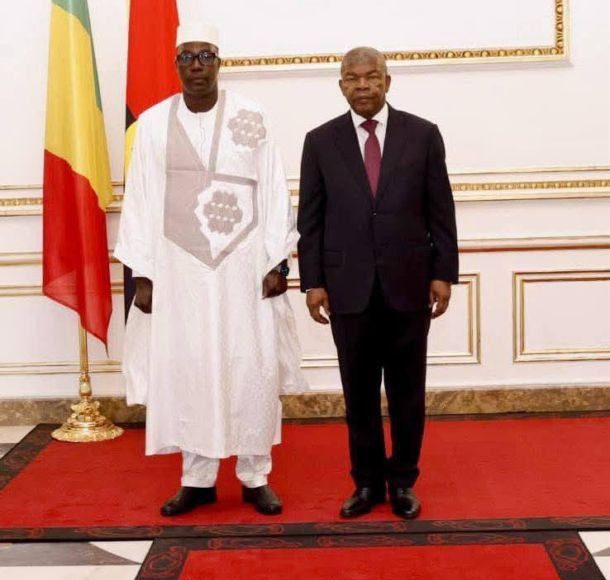
The Economic and Financial Crimes Commission (EFCC) has frozen 1,146 bank accounts suspected of involvement in illegal activities such as money laundering, unauthorised dealing in foreign exchange, and illegal manipulation of the naira to combat forex racketeering.
The accounts were frozen following an interim order granted by Justice Emeka Nwite of the Federal High Court, Abuja, paving the way for a thorough investigation into their activities within 90 days.
The decision came following an ex-parte motion filed by the EFCC’s counsel, Ekele Iheanacho, who emphasised the alleged link between these accounts and the manipulation of Naira value through cryptocurrency platforms.
According to the EFCC Chairman Ola Olukoyede, the move is a crucial step to safeguard the foreign exchange market and protect the economy, especially in light of the significant sums—over $15 billion—that have passed through illegal forex platforms in the past year alone.
The crackdown extends beyond freezing accounts. Earlier measures saw the suspension of 300 illegal forex accounts trading on peer-to-peer platforms.
This comes amidst broader efforts by the government to stabilise the exchange rate amid the dollar shortage and address the continuous decline in the naira’s value.
Finance Minister and Coordinating Minister for the Economy, Wale Edun, alongside the Governor of the Central Bank of Nigeria, Yemi Cardoso, and EFCC Chairman had previously convened to strategise solutions to the naira crisis.
Cardoso highlighted the various factors contributing to the exchange rate volatility, including speculative forex demand, inadequate forex reserves, increased capital outflows, and excess liquidity from fiscal activities.
To address these challenges, the government has initiated a comprehensive strategy aimed at enhancing liquidity in the forex market.
This strategy includes unifying FX market segments, enforcing regulations on commercial banks, and introducing new operational mechanisms for Bureau De Change operators.
In tandem with these efforts, the EFCC continues its crackdown on entities suspected of forex racketeering. Among those under scrutiny are individuals and companies with accounts across various banks, including GTBank, Titan Trust Bank, Access Bank, Zenith Bank, and others.
According to the Punch, some of the bank accounts mentioned are; Akitoye Adeyemi Ayomide with GTBank account number, 0165110025; Clyp Trading Ltd, Titan Trust Bank account number: 0000331101; Clyp Consulting Ltd, Providus account number: 9401374554 and Toyetech Platforms Ltd, Titan Trust Bank account number: 0000134962.
Winx International Platforms Ltd with Titan Trust Bank account number: 0000135055; Shutterscore Trading Platforms Ltd, Access Bank account number: 1532363954; Tradecillion Trading Ltd, Stanbic IBTC account number: 0045672922 and Nsofor Nmamdi, GTBank account number: 0449088666.
Kora Payments Network Ltd-Operations, UBA account number: 1022242089; Renderstack Technologies Ltd, Zenith Bank account number: 1210355120; Korex Payments Ltd, Globus account number: 5000007837 and Awe Microfinance Bank Ltd, Providus account number: 5400760781 and Victor Asuquo, Opay Digital Services Ltd account number: 9020132068.
Akingbade Juwon, ECOBank account number: 3442053006; Nsofor Donald Nmamdi, Union Bank account number: 0140460572; Asuquo Victor Samuel, First Bank account number: 3153199542; Oty Ugochukwu Stanley, FCMB account number: 4039304011.
Other frozen accounts are Oty & Sons Global Concepts, Fidelity Bank account number: 6060410145; Pelumi Ayandoye, Wema Bank account number: 0234852277; David George Ajala, Fidelity Bank account number: 5090680780, among others.
The investigation extends beyond domestic borders, with the EFCC also prosecuting Binance Holdings Limited and two of its executives for alleged money laundering.
Meanwhile, the Federal Inland Revenue Service is pursuing tax evasion charges against the company.
About The Author
Related Articles
Zimbabwe Rejects $350m US Health Deal Over Sovereignty Dispute
Zimbabwe has formally withdrawn from negotiations on a proposed $350 million health...
ByWest Africa WeeklyFebruary 25, 2026Niger’s President Outlines Vision for Strategic Partnership with China
Niger’s Head of State, General Abdourahmane Tiani, has articulated a renewed vision...
ByWest Africa WeeklyFebruary 25, 2026Fire Destroys 140 Tonnes of Cotton in Western Burkina Faso
A major fire has destroyed more than 140 tonnes of cotton in...
ByWest Africa WeeklyFebruary 25, 2026Mali’s New Ambassador to Angola Presents Credentials, Pledges Stronger Bilateral Ties
Diplomatic relations between Mali and Angola entered a new phase on February...
ByWest Africa WeeklyFebruary 25, 2026












